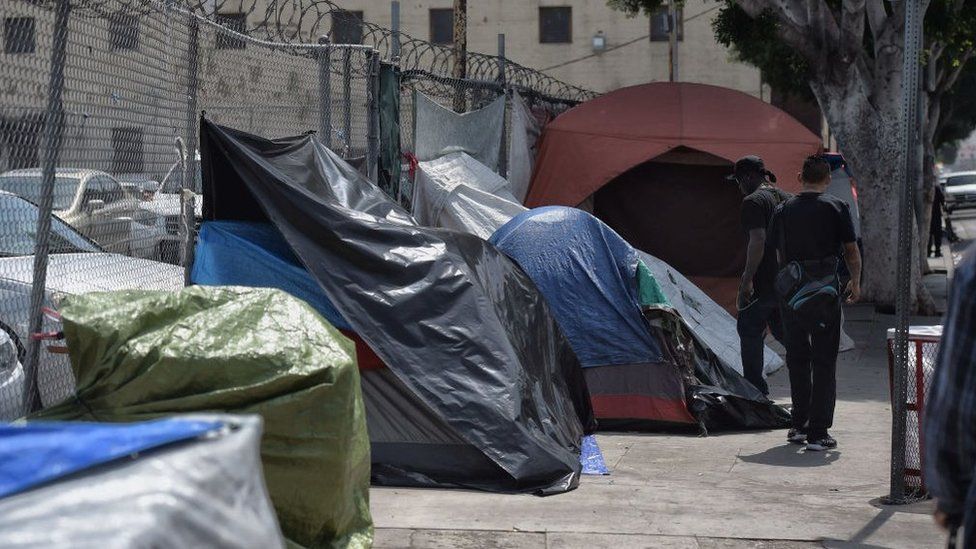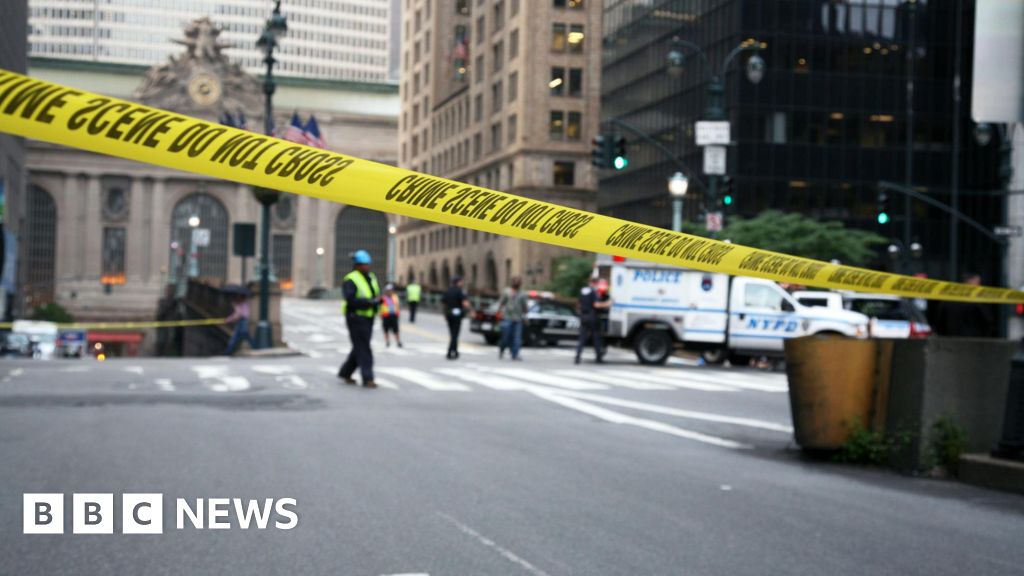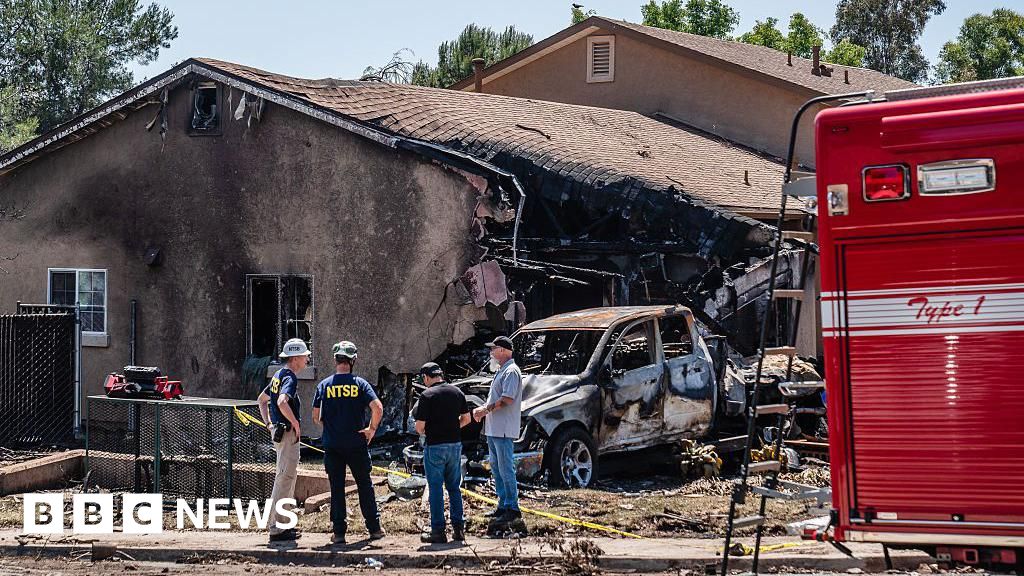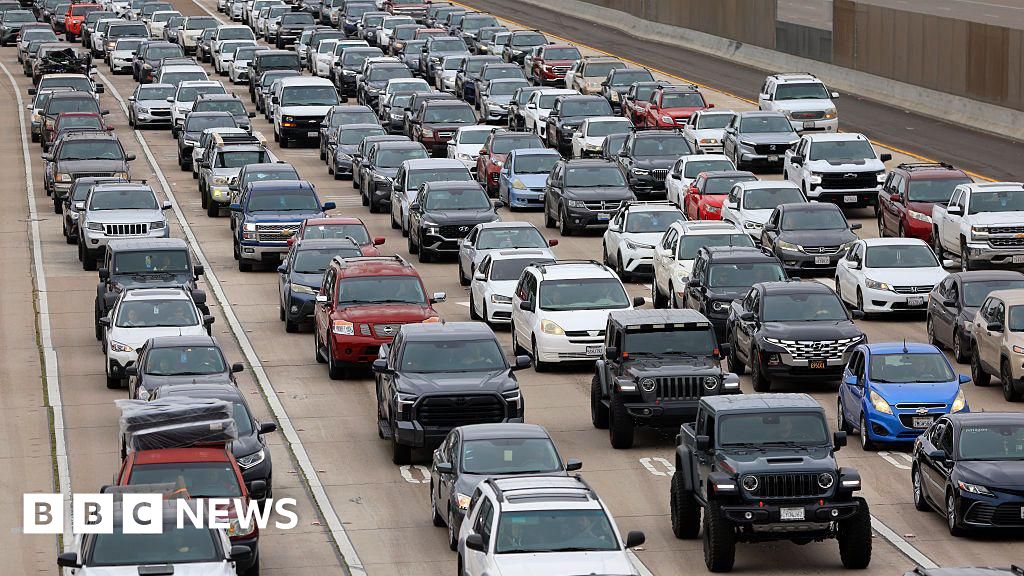ARTICLE AD BOX
 Image source, Getty Images
Image source, Getty Images
Homeless people make up a large number of the homicide victims in Los Angeles last year.
By Kayla Epstein
BBC News, Los Angeles
A series of deadly attacks on unhoused people in the US has coincided with a spike in American homelessness.
US officials released a report on Friday showing that homeless numbers have risen about 12% since 2022.
The new survey comes after the recent arrest of a suspected serial killer in Los Angeles who targeted the homeless.
Separately, a California man attended court on Friday for manslaughter after allegedly filming himself shooting a sleeping homeless man.
The annual Point In Time survey, taken on a single January night each year, found that 653,104 people experiencing homelessness in the US. The Department of Housing and Urban Development report says that this is the highest number of people since the count began in 2007.
Unhoused people, US officials, and advocates told BBC News that this recent spate of deadly attacks on the homeless underscores the dangers of such a spike in numbers.
"The recent murders of people experiencing homelessness - many who were sleeping at the time - is a cruel reminder that this is a life-and-death issue that must be met with urgency," Jeff Olivet, director of the US Interagency Council on Homelessness, said.
Those interviewed said that a political climate that stigmatises homelessness, inadequate housing, and gang and drug violence all help create a dangerous world for some of America's most vulnerable people.
But most concerning to many is that the attacks occur with regularity and often without notice.
"I've been assaulted when I'm in the streets, homeless," said Keith Jones, who is currently staying at the Union Rescue Mission, a shelter in Los Angeles's Skid Row neighbourhood. "I've woken up bruised and didn't know who attacked me."
Attacks on homeless people
Police allege in the days after Thanksgiving, a suspected Los Angeles serial killer zoomed through the streets of LA in a pricey BMW and fired upon homeless people he saw. He is also accused of killing another man during a home robbery.
The suspect, Jerrid Joseph Powell, 33, was arrested and charged with four counts of murder.
Mr Powell has not yet been arraigned or entered a plea, but the violence he allegedly committed is not unique in the US, advocates said.
"Every time there is a mass shooting, a serial killer, it pops back up into our consciousness and it gets written about and talked about," said Margot Kushel, director of the Benioff Homelessness and Housing Initiative (BHHI) at the University of California, San Francisco. "This violence is happening every day, just outside of our vision."
Other recent incidents have caused increased dialogue, including a shooting upon a homeless encampment in Las Vegas on 1 December that killed one and injured three others.
Watch: New Yorkers demand action on homelessness
The death of Jordan Neely in New York caused mass protests in America. The homeless man died after a former Marine, Daniel Penny, held him in a chokehold during an argument after Mr Neely acted erratically on the subway. Penny has pleaded not guilty to manslaughter charges.
This violence is not new, either.
For example, from 1964 to 1975, a serial killer dubbed the "Skid Row Slasher" murdered 11 transient men in Los Angeles. The killer, whose real name was Vaughn Orrin Greenwood, was sentenced to life in prison in 1977.
A high rate of homicide
Nearly a quarter of the victims in Los Angeles homicide cases in 2022 were homeless, according to the Los Angeles Police Department. Unhoused people only account for 1.2% of the city's population.
Ms Kushel warned it was difficult to accurately track all of the homicides and deaths of homeless people in the US, because it is hard to glean a person's housing status from death certificates in most cities' data. She believes the numbers are much higher than known..
While US officials said on Friday that the federal government does not track the deaths of people experiencing homelessness, they emphasised that data shows that unhoused people live shorter lives on average than those who have adequate housing.
They also face greater dangers from non-fatal, violent encounters, according to a survey conducted by Ms Kushel's service organisation. About 38% of homeless people surveyed said they had experienced physical or sexual violence.
Nearly half didn't know their assailants and some of that violence came from people who were not homeless, according to the survey. The homeless respondents connected that "to the stigma of homelessness".
There are further dangers for unhoused persons as the problem grows, advocates said.
"People who are homeless are placed in these dense environments, especially like Skid Row and the encampments throughout Los Angeles now," Reverend Andy Bales, president of the Christian homeless charity Union Rescue Mission, told the BBC. "The more people trapped by homelessness and are pushed together, the more tension, the more violence."
Billions of dollars, few solutions
Federal housing officials pointed to the expiration of the Biden administration's pandemic-era housing subsidies, rising rents, and low rental inventory as key drivers behind an homelessness increase. The Biden administration has proposed billions in more funding and distributed hundreds of millions dollars for local housing and homelessness prevention programs.
States like California, which are particularly burdened by homelessness, have invested billions already and are planning more, according to recent programs announced by the governor's office.
"The state's homelessness crisis has been decades in the making," Gov Gavon Newsom said in October.
Mr Jones, who is working to find permanent housing in Los Angeles, said that there are many mental health, rehabilitation, and shelter services offered, but unhoused people are often unaware of them.
He hoped greater awareness and dialogue might help keep people safe.
"I encourage everybody, if you see a homeless person being abused or assaulted, there's plenty of numbers you could call," he said. "Someone could give them some help."

 1 year ago
67
1 year ago
67








 English (US) ·
English (US) ·